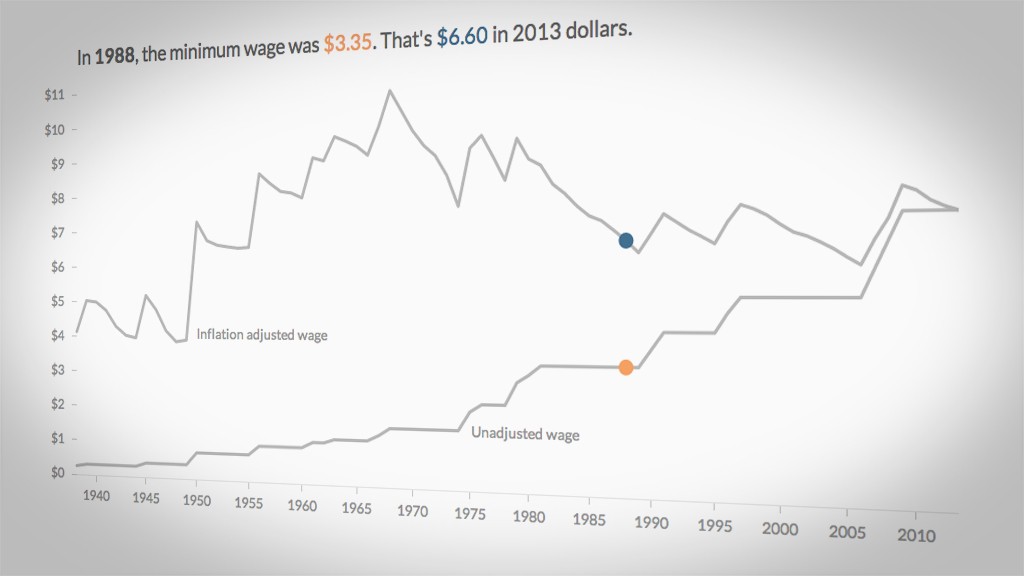Supporters of raising the federal minimum wage to $10.10 an hour say it will increase productivity, lower turnover and increase wages for 28 million workers.
Critics contend that a higher minimum will hurt jobs and consumers.
A new analysis from the nonpartisan Congressional Budget Office indicates that both sides have a point.
The key takeaways from the CBO report: Gradually raising the federal minimum wage to $10.10 from $7.25 would boost the incomes of most low-wage workers and lift 900,000 out of poverty. But it could also result in the loss of 500,000 jobs.
Is 500,000 workers a lot? On the one hand that's half a million people who will be hurt by a loss of income. But on a more macro level, the CBO said it represents only a 0.3% decrease in employment.
Why could there be job loss? A mix of reasons. A higher minimum wage raises payroll costs for an employer. That employer may handle those higher costs in any of several ways: cut jobs, reduce worker hours, curb summer hiring, opt not to replace workers who leave; book lower profits; or raise prices on customers.
Given the uncertainty of estimates, however, the CBO said there is a good chance the job loss resulting from a higher minimum could be much less than 500,000 -- or could go as high as 1 million jobs.
White House economists said they think the effect could be close to zero job loss since businesses' higher payroll costs could be offset by lower turnover and higher productivity.
In any case, the move would boost wages for most low-wage workers, according to the CBO. Its report estimates about 16.5 million workers who make less than $10.10 an hour would see higher earnings once the higher minimum is fully implemented in 2016, which Democrats in the House and Senate have been calling for.
Related: Minimum wage since 1938
In addition, the CBO said, some workers earning between $10.10 and $11.50 an hour could also see a raise in what's known as a "ripple effect."
And because of the stimulative boost to demand that a higher wage may bring, some workers across the income scale may benefit. The more low-wage workers make, the more they'll have to spend, and the better that will be for businesses selling products and services.
The CBO report also analyzed a proposal to raise the minimum wage to $9 per hour. Its effects would be less pronounced, with an estimated loss of 100,000 jobs and wage increases for an estimated 7.6 million lower wage workers.
Related: Check minimum wage in your state
Last week, in an effort to encourage lawmakers to raise the federal minimum, President Obama signed an executive order requiring businesses that get new or renewed federal contracts to pay their minimum wage workers $10.10 an hour starting in 2015. The order is expected to raise wages for a few hundred thousand people.
Once the CBO report came out, there was a partisan rapid-fire response at the ready. Republicans who oppose the $10.10 proposal immediately seized on CBO's job loss estimates, while Democrats touted the agency's assessment that a higher minimum would lift 900,000 workers out of poverty.



